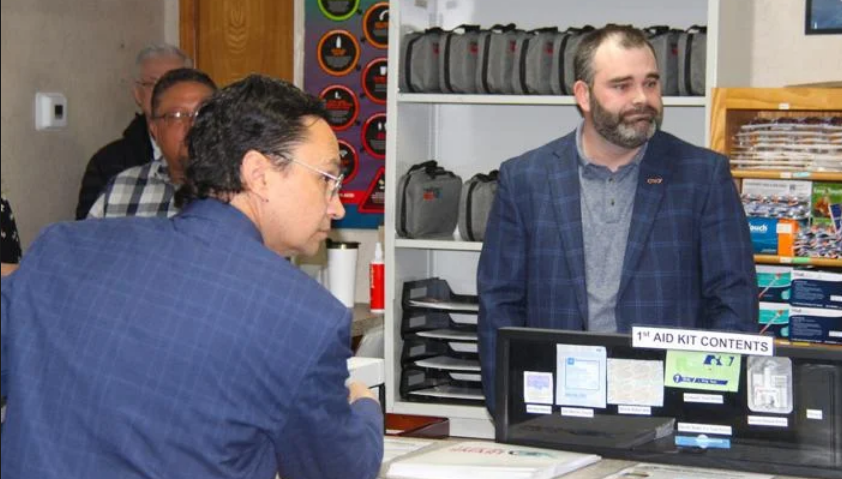
- Details
- By Chuck Hoskin Jr
Guest Opinion. Opioid addiction has taken a terrible toll on the Cherokee Nation. Once again, Native Americans have been especially targeted by people and companies making profits from addictive substances without fully revealing the dangers.
The result has been lost lives and broken families. But as a tribal nation, we are fighting back. We won a court settlement to hold the opioid industry accountable, and we are using those funds to look out for their victims. With a strategic approach to reduce the harm of opioids and other stimulants, and give people an easier path to recovery, we are entering a new era of hope and healing.
Cherokee Nation opened our first permanent harm reduction program in Tahlequah early this year. The facility provides sterile syringes, wound care supplies, Naloxone, recovery support and other life-saving resources to provide immediate help to those most in need. It is accessible to both tribal and non-tribal citizens, ages 18 and over, and it has already successfully served almost 500 people. Now, our latest effort is a Harm Reduction Mobile Van, which will extend a helping hand across our 7,000-square-mile reservation.
The mission remains urgent. We see this in the alarming rates of Hepatitis C and opioid overdoses in northeast Oklahoma. Over 30 years of research shows that harm reduction programs do not encourage illegal drug use or increase crime; instead, they significantly reduce overdose deaths and prevent the spread of viral hepatitis and HIV.
These efforts are already making a difference, and they are just the beginning. Through the Public Health and Wellness Act, Cherokee Nation is making a $100 million investment in battling addiction.
With this funding from our opioid industry settlement, we are bolstering our behavioral health programs and constructing treatment facilities across the reservation, including a world-class facility in our capital city. We are also investing in the health care workforce with a $5 million permanent endowment. This fall the first students receiving full ride scholarships to become behavioral professional will start classes and, after graduating, they will come work in our behavioral health programs.
Cherokee Nation’s programs are both innovative and compassionate. Along with Deputy Chief Bryan Warner and the Council of the Cherokee Nation, I am determined to provide the quality care that our communities deserve. We will protect the most vulnerable and lift them up through holistic recovery.

The Public Health and Wellness Act, along with the new Harm Reduction Mobile Van, are examples of our tribe's resolve to uplift wellness for all of our people. We have a real opportunity to help people regain control of their lives and shape a fresh reality. As we embrace a new century of Cherokee goodness, we are shaping a healthier, more resilient Cherokee Nation. These transformative changes will ripple through our communities and Cherokee families for years to come.
Chuck Hoskin, Jr. is the principal chief of the Cherokee Nation.
More Stories Like This
Protecting Our People through Human Trafficking AwarenessIt is Time for Animal Behavior to Become Its Own Discipline
Native People Recognize ICE Violence. You Should Too.
Building a 21st Century Cherokee Healthcare Workforce
Superhuman. Should We Be Better Than We Are?
Help us defend tribal sovereignty.
At Native News Online, our mission is rooted in telling the stories that strengthen sovereignty and uplift Indigenous voices — not just at year’s end, but every single day.
Because of your generosity last year, we were able to keep our reporters on the ground in tribal communities, at national gatherings and in the halls of Congress — covering the issues that matter most to Indian Country: sovereignty, culture, education, health and economic opportunity.
That support sustained us through a tough year in 2025. Now, as we look to the year ahead, we need your help right now to ensure warrior journalism remains strong — reporting that defends tribal sovereignty, amplifies Native truth, and holds power accountable.
 The stakes couldn't be higher. Your support keeps Native voices heard, Native stories told and Native sovereignty defended.
The stakes couldn't be higher. Your support keeps Native voices heard, Native stories told and Native sovereignty defended.
Stand with Warrior Journalism today.
Levi Rickert (Potawatomi), Editor & Publisher

